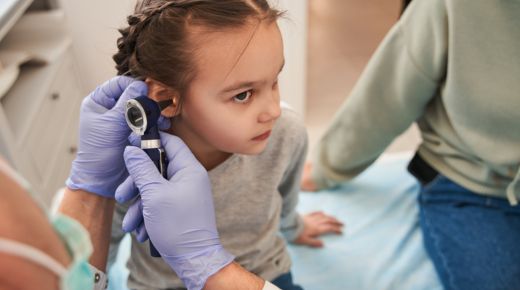
Imagine if your child couldn’t hear the world around them. Sounds like a nightmare, right? But for many parents, this is a reality that goes unnoticed for far too long. Childhood hearing loss is an invisible issue that can impact education, social interaction, and overall development. This article aims to guide parents, pediatricians, and educators in identifying signs of hearing loss in children early on.
Signs of Hearing Loss
One of the main reasons childhood hearing loss often goes undetected is the subtlety of its early signs. Parents and caregivers might confuse these symptoms with behavioral issues or developmental delays. Kids with hearing difficulties may not respond to their name, struggle with following directions, or frequently ask for repetition. In an educational setting, they may seem inattentive or unengaged. Observing these signs early can pave the way for timely intervention.
Impact of Untreated Hearing Loss on Development
Hearing is crucial for speech and language development in children. When a child cannot hear clearly, it can hinder their ability to learn new words, understand conversations, and develop speech. Over time, untreated hearing loss may lead to delays in language acquisition, impacting academic performance and social skills. Awareness and early detection can prevent these negative outcomes and ensure that every child has the opportunity to thrive.
Barriers in Diagnosis and Cultural Stigma
Despite the importance of early detection, several barriers may delay the diagnosis of hearing loss in children. These include accessibility to healthcare services, financial constraints, and cultural stigmas surrounding disability. Some communities may view hearing loss as a taboo subject, leading to denial and delay in seeking help. Educators and healthcare providers must work together to raise awareness and reduce these barriers, making support accessible for all families.
Role of Pediatric Audiologists in Early Detection
Pediatric audiologists play a vital role in diagnosing and managing hearing loss in children. They use specialized tests to assess a child’s hearing abilities and provide treatment options tailored to their needs. Regular screenings by a pediatric audiologist can identify issues that might otherwise go unnoticed. Collaborating with these specialists ensures that children receive the attention they need to support their hearing health.
Importance of Parent-Teacher Communication
For early detection of hearing loss, effective communication between parents and teachers is essential. Teachers are often the first to notice signs of hearing difficulties in the classroom. Parents should maintain open lines of communication with educators to discuss any concerns or observations about their child’s behavior and performance. This partnership can lead to early intervention and better outcomes for the child.
Significance of Routine Hearing Screenings
Routine hearing screenings are an effective strategy for early detection of hearing loss. These screenings should be part of regular check-ups with a pediatrician or healthcare provider. By prioritizing these assessments, parents can ensure that any hearing issues are identified and addressed promptly. Proactive measures like these can make a significant difference in a child’s life.
Childhood hearing loss is a silent issue that requires vigilance from parents, educators, and healthcare professionals. Recognizing early signs, understanding the impact, and collaborating with pediatric audiologists are crucial steps to addressing this challenge. Encourage routine screenings and conversations about hearing health. Let’s work together to make sure every child’s voice is heard loud and clear.
